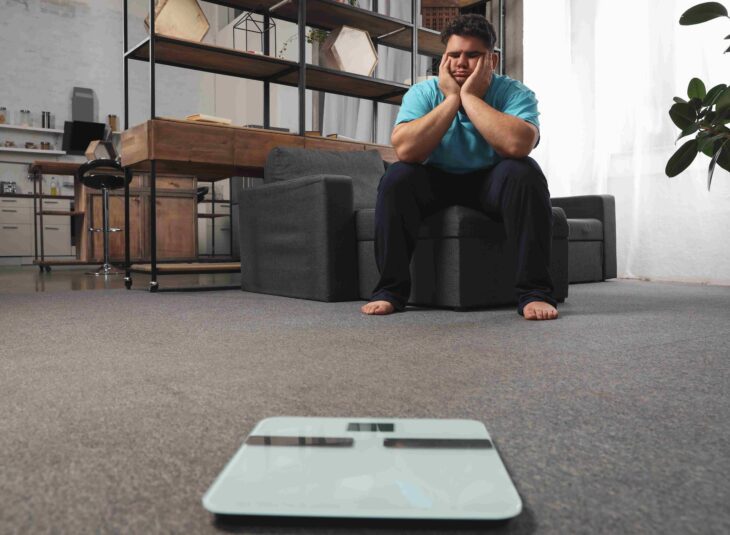
Resetting Your Body’s Thermostat: Why Weight Loss Can Feel Like an Uphill Battle
INTERVIEW ON THE PRICE OF BUSINESS SHOW, MEDIA PARTNER OF THIS SITE.
Recently Kevin Price, Host of the nationally syndicated Price of Business Show, welcomed Dr. Ann Hester to provide another commentary in a series.
The Dr. Ann Hester Commentaries
If you’ve ever struggled to lose weight—and keep it off—you’re not alone. In fact, decades of research have revealed that weight control is far more complex than the familiar “eat less, move more” advice. Everything from our genes to the food we eat can influence a hidden thermostat deep in the brain—the hypothalamus—that regulates our weight like a stubborn set point.
When I was in medical school, one of my endocrinology professors explained that if someone gains excessive weight at a young age, the brain may “reset” to believe that weight is the new normal. Later in life, when individuals attempt to shed pounds, the brain perceives the loss as a threat—almost as if the person is ill—and it lowers the metabolic rate in an effort to restore the old, higher weight.
Fast-forward to today, and mounting evidence confirms this theory. Think about contestants from reality shows like The Biggest Loser. Many lost tremendous amounts of weight, only to regain it later. Their brains, in essence, were fighting to preserve what they believed was “normal.” That explains why many people hit frustrating plateaus despite cutting calories and exercising more.
Of course, obesity isn’t just about appearance—it carries profound health risks. Excess weight is linked to arthritis, type 2 diabetes, heart disease, and even certain cancers. But here’s the good news: you are not powerless. Science shows that your choices can override genetic tendencies and even reset some of the body’s most stubborn patterns.
Lifestyle medicine—a field in which fewer than one percent of U.S. physicians are board-certified—offers practical, research-based strategies to prevent, treat, and in some cases reverse chronic disease. Beyond the basics of diet and exercise, it emphasizes a holistic approach:
- Sleep matters. Poor sleep disrupts hunger hormones. Ghrelin, the hormone that stimulates appetite, surges when you’re sleep-deprived, making you feel hungry even when you don’t need food.
- Stress matters. Chronic stress elevates cortisol, which promotes fat storage and contributes to hormonal imbalances.
- Food quality matters. A whole-food, plant-predominant diet supports hormonal balance, improves gut health, and helps reset the brain’s metabolic thermostat.
One powerful but often overlooked tool is caloric density—the number of calories per pound of food. Compare iceberg lettuce (about 64 calories per pound) to olive oil (around 4,000 calories per pound). You’re unlikely to eat a pound of either, but the contrast illustrates how dramatically calorie density varies. By filling your plate with low-density foods like vegetables, beans, and fruits—and adding small amounts of higher-density items—you can feel satisfied while keeping your overall calorie intake in check.
For example, a salad of lettuce, strawberries, a few raisins, a sprinkle of croutons, and a drizzle of olive oil with balsamic vinegar delivers flavor, fiber, and nutrients—yet still remains relatively low in caloric density.
The bottom line: weight loss is not simply a matter of willpower. It’s about understanding your body’s inner thermostat and working with it, not against it. With the right strategies—better sleep, stress control, and wise food choices—you can redefine your “normal,” improve your health, and reclaim your vitality.
Remember to define your vision, then act with precision.
Ann M. Hester, M.D. is a board-certified internist with over 25 years of experience. She obtained her medical degree from the University of Tennessee in Memphis. Dr. Hester believes when patients are taught exceptional “patient skills,” they become empowered to play a previously unimagined role in optimizing their medical care and minimizing medical costs. Her mission is to share these critical skills by various means, thereby improving patient outcomes and strengthening the U.S. healthcare system. This mission started in medical school when she witnessed the tremendous gap between how patients and doctors think. Over the years, she has written various patient empowerment pieces online and through books. Her latest book is Patient Empowerment 101: More than a book, it’s an adventure! This unique work takes an unprecedented step in helping people think more like doctors and position themselves at the center of their healthcare team.
Learn more at https://www.patientempowerment101.com.
Connect with her through social media:
Twitter: @patientworldnet
LinkedIn: https://www.linkedin.com/in/patientempowerment101






